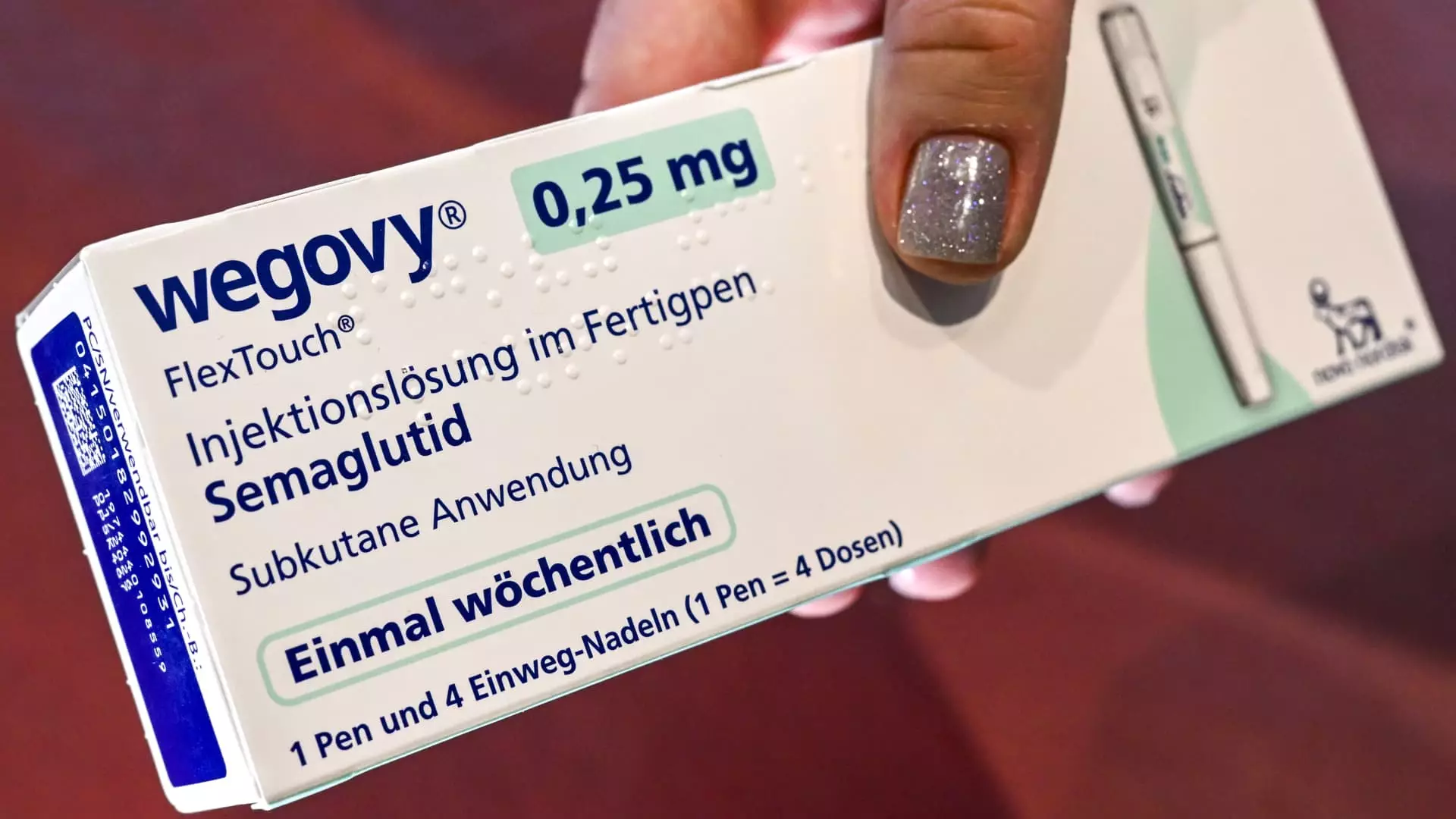In an era where health technology is revolutionizing patient access, Novo Nordisk’s decision to partner with telehealth giants like Hims & Hers, Ro, and LifeMD for its weight loss drug, Wegovy, epitomizes both progress and pitfalls in healthcare. As more people struggle with obesity, fueled by lifestyle changes and a culture of convenience, Wegovy has emerged as a beacon of hope—and profit—amid this crisis. It is disconcerting, however, to observe how this scenario highlights troubling trends in drug accessibility, cost manipulation, and the role of telehealth providers.
The announcement that Wegovy will now be readily available through telehealth services, following a period of significant shortages, is undoubtedly a positive development for patients seeking effective weight management. The exuberant surge in stock prices for Hims & Hers, up 18% in one day, conveys unambiguous interest and validation from investors. But the volatility of this sector raises a crucial question: is this shift towards telehealth genuine progress, or simply an opportunistic response to an urgent demand?
Telehealth: A Double-Edged Sword
While the intent behind widening access to Wegovy through telehealth providers appears noble, it can mask underlying vulnerabilities in the system. The allure of convenience is undeniable; patients can now access medications from the comfort of their homes without visiting brick-and-mortar pharmacies. However, this convenience may come at the cost of patient education and long-term care. The searing reality is that telehealth providers might prioritize profitability over the patient’s well-being, leading to a transactional model of healthcare that neglects holistic treatment strategies.
Hims & Hers has positioned itself as more than just a dispensary for Wegovy, offering 24/7 care and nutritional guidance for a starting price of $599 per month. While this may sound attractive, it raises eyebrows on ethical grounds. Why does the cost of access to care—and a weight loss drug—vary so widely depending on the provider? Is it ethical for medications to be profit-driven, especially those that can significantly impact one’s health?
The telehealth landscape also grapples with issues of trust and quality control. The FDA has voiced concerns regarding compounded medications, which these telehealth platforms had heavily relied on during shortages. Now, as access shifts back to brand-name drugs, patients might unwittingly navigate a minefield of varying quality standards and ethical practices. Patients deserve the assurance of safe, approved medications, yet telehealth thrives on a market-driven approach that could risk this assurance.
The Fine Line Between Accessibility and Affordability
In announcing its partnership, Novo Nordisk has presented Wegovy at a price of $499 per month through its online pharmacy, roughly half of its list price. The varying price points set by telehealth companies further complicate the question of economic access. While Ro markets Wegovy at the same $499, Hims & Hers charges a premium due to added services. This discrepancy highlights a troubling reality in the healthcare system: the inability to standardize pricing based on transparency and fairness may penalize those with limited resources.
These price manipulations reveal a disturbing trend where the very patients in dire need of effective weight management solutions are often priced out of access. The weight loss drug industry, particularly within the framework of telehealth, risks perpetuating socioeconomic disparities as individuals with greater financial means are granted greater access to medications like Wegovy. In an ideal world, healthcare accessibility should not be contingent on one’s income.
The Broader Implications of Obesity Treatment
Novo Nordisk’s strategic moves come at a time when obesity is increasingly recognized as a public health crisis. The company’s focus on expanding access to Wegovy illustrates a fundamental paradigm shift; yet, this shift raises salient questions about the responsibility of pharmaceutical companies in treating obesity. Are they merely contributing to a culture of weight loss solutions without addressing the pervasive societal issues that lead to obesity in the first place?
As healthcare continues to embrace technology, it is vital to remind ourselves of the ethical responsibilities that accompany such shifts. The partnership between Novo Nordisk and telehealth providers can be seen as a litmus test for the broader landscape of healthcare reform. Our health system must prioritize enriching lives through education, preventive measures, and comprehensive treatment strategies, rather than allow profit motives to dictate access to vital medications.
The rise of telehealth options for drugs like Wegovy presents groundbreaking opportunities, yet it simultaneously underscores problematic trends in access and cost that need profound scrutiny. We must remain vigilant, questioning whether such trends serve patient needs, or if they merely cement the ever-widening gap between those who can pay for their health and those who cannot.

